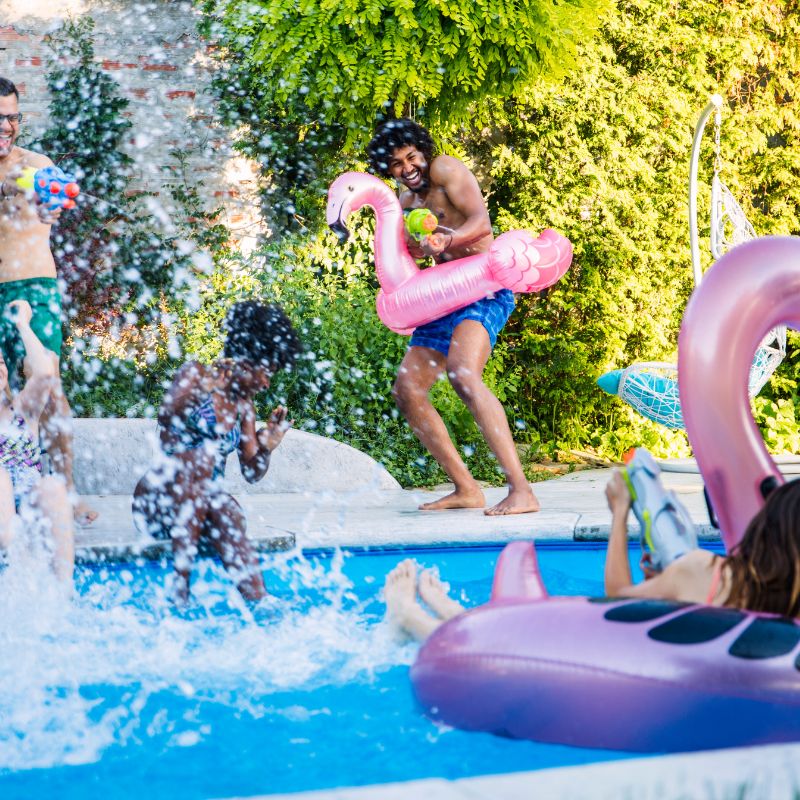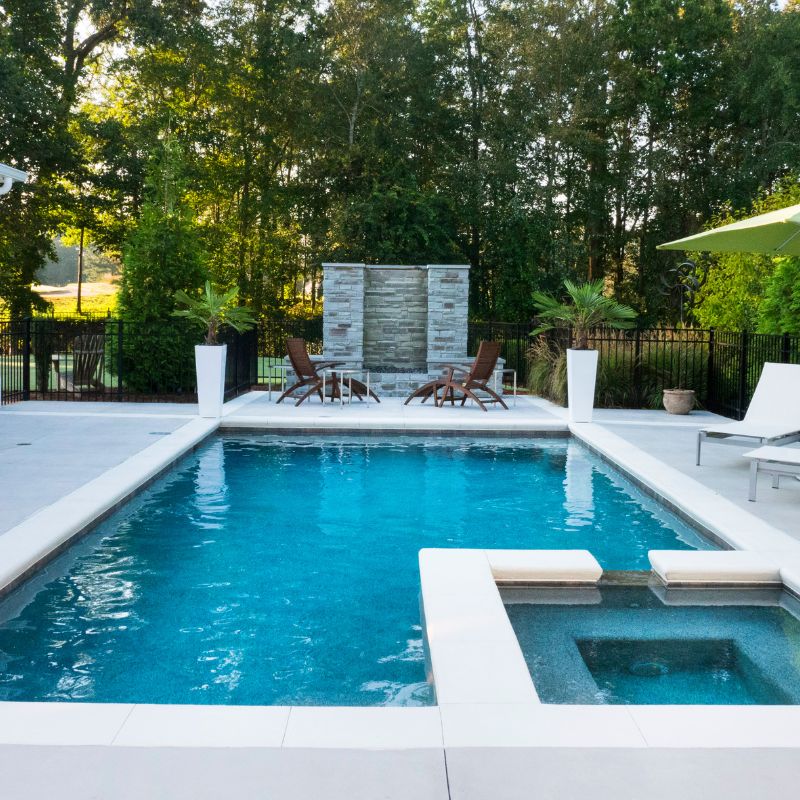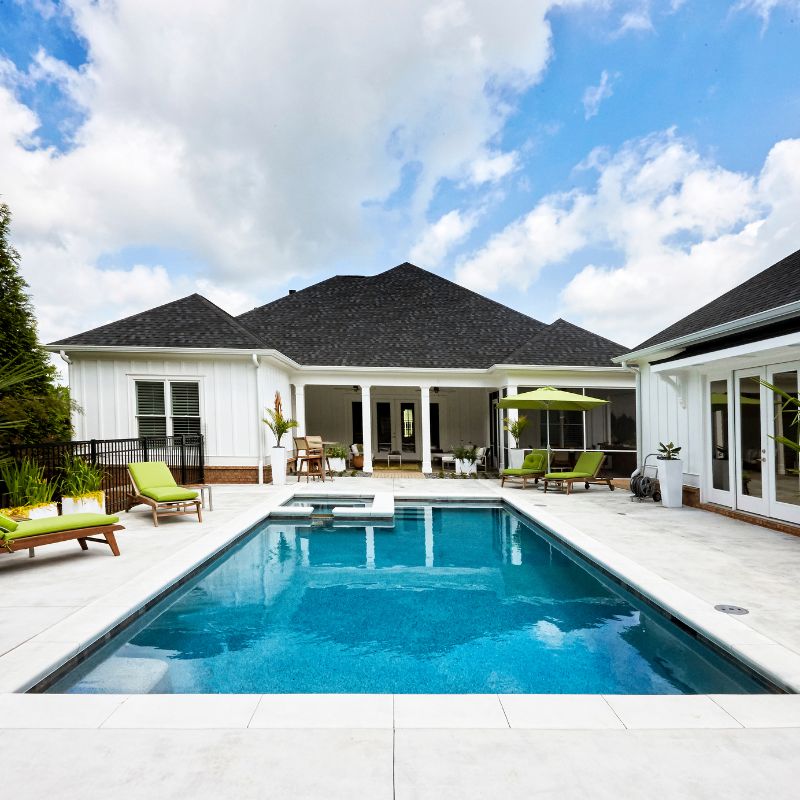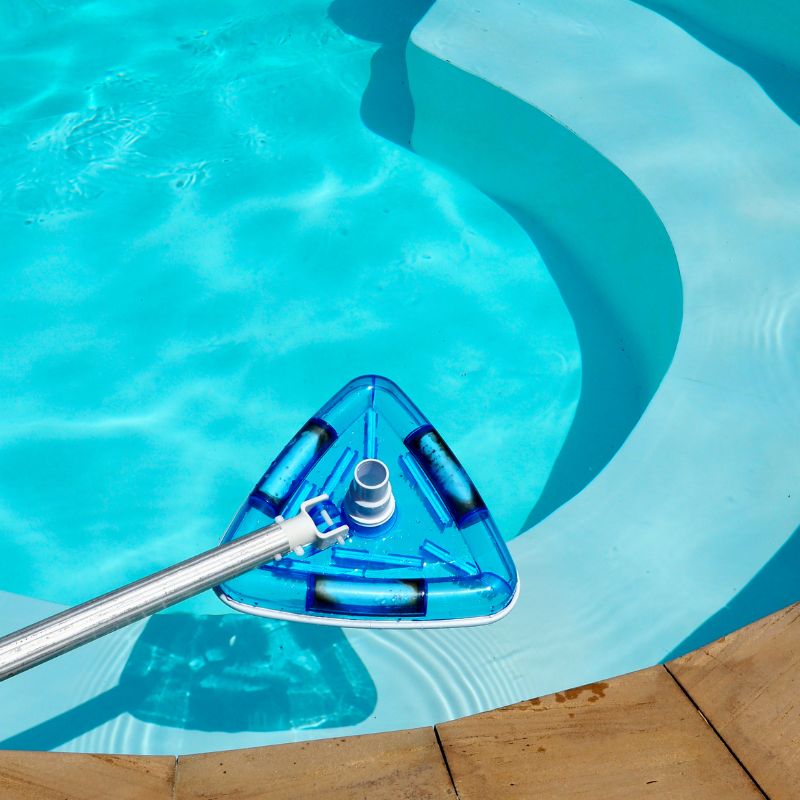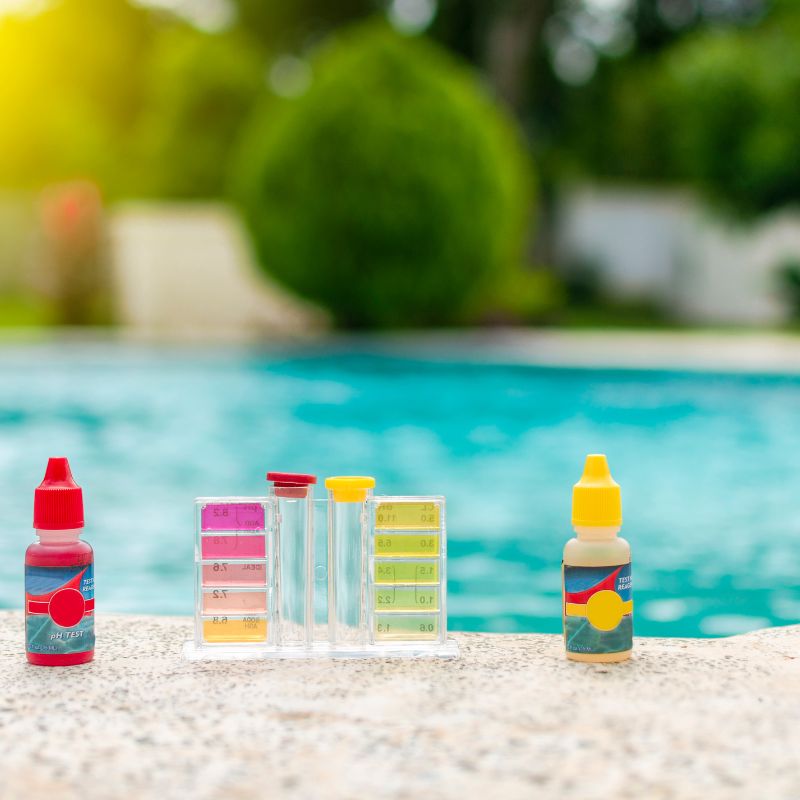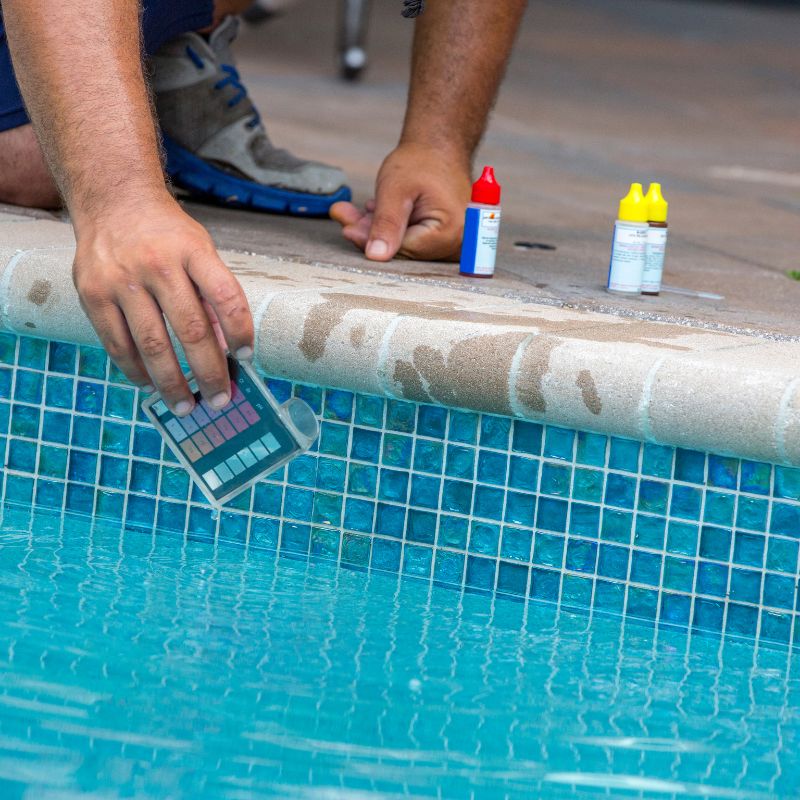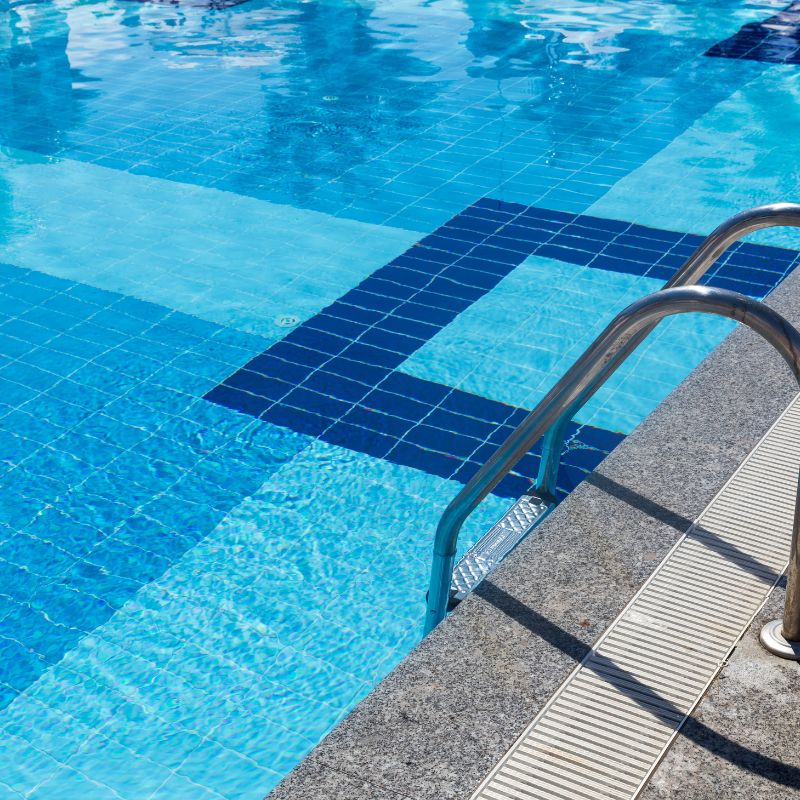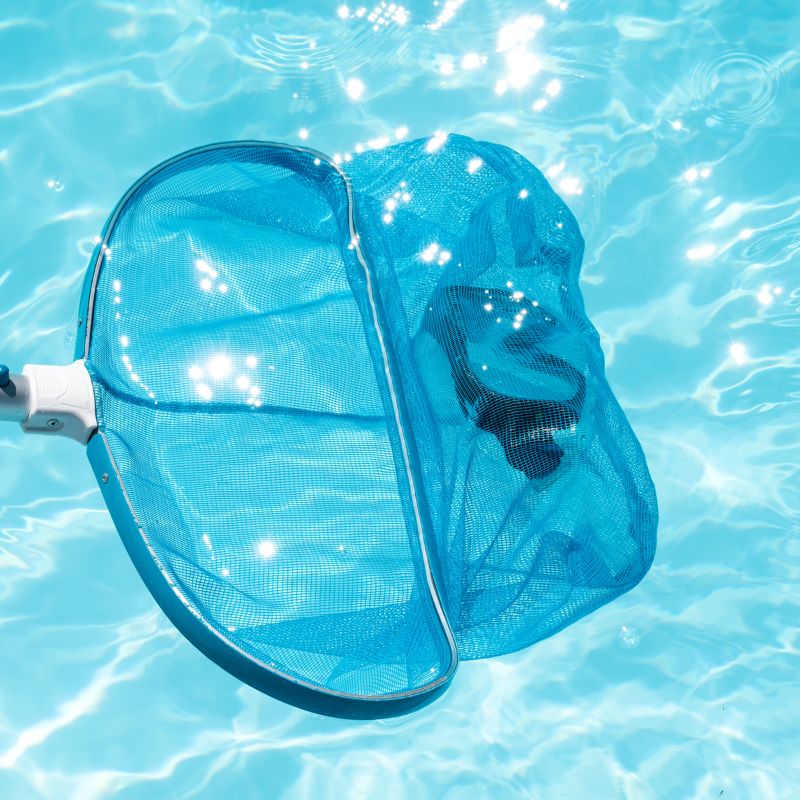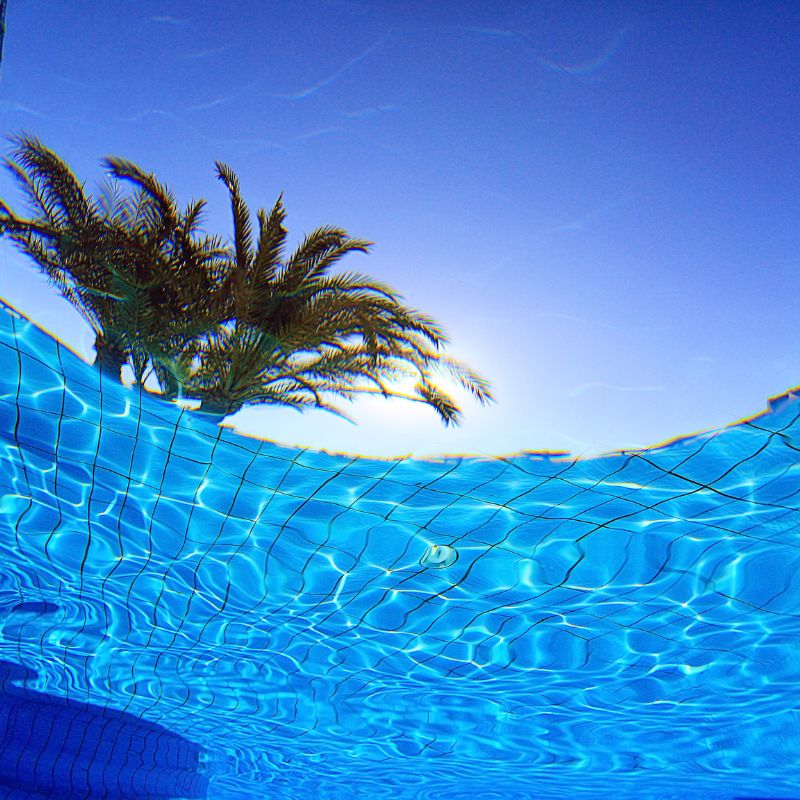Picture this: It’s a sweltering summer day. You’re ready for a refreshing dip in your pool, but then you hear it—a sickening grinding noise coming from your pool equipment. Your pump is on its last leg. Yikes. Nobody wants a green swamp in their backyard, right? Replacing a pool pump is a must to keep your pool sparkling, but how much will it set you back?
This guide breaks down everything you need to know about swimming pool pump replacement costs so you can avoid sticker shock. We’ll cover:
- Key signs your pump needs replacing.
- The difference between DIY and professional installation.
- A breakdown of average replacement costs in 2025.
- Factors that influence pricing.
Dealing with pool equipment can be a real pain, but Transparent Pool Service makes it easy. We’re local experts ready to get your pool back in top shape. Give us a shout if you’re in Lehigh Acres, Alva, North Fort Myers, Babcock Ranch, Florida, or the surrounding areas.
Too Long; Didn’t Read?
Here’s a quick overview of typical pool pump installation cost or replacement cost:
| Component | Average Cost Range | Notes |
|---|---|---|
| Pump Unit | $300 – $1,600 | Depends on horsepower, type (single-speed, dual-speed, variable-speed), and brand. Variable-speed pumps are more expensive upfront but save on energy costs long-term. |
| Installation Labor | $100 – $400 | Covers removing the old pump, installing the new one, and testing. Complexity of the installation also plays a role. |
| Total Replacement | $400 – $2,000 | Combining pump and installation. This is the overall range you can generally expect. |
Key Signs Your Pump Needs Replacing
A healthy pool pump is the unsung hero of a clean, inviting pool. It keeps the water circulating, filters out debris, and distributes chemicals evenly. But like any piece of machinery, pool pumps can wear out over time. Catching problems early can save pool owners from a complete system failure—and a hefty repair bill. So, what are the telltale signs it’s time for a new pool pump? Let’s take a look.
- Unusual Noises: A healthy pump hums quietly in the background. If you start hearing grinding, squealing, rattling, or knocking sounds, that’s a red flag. These noises often indicate worn bearings, a damaged impeller, or other internal problems. It’s like a car making weird noises—you know it’s not good.
- Weak Water Flow: Is your pool’s water circulation noticeably weaker? Are the jets barely pushing water? This could mean your entire pump is struggling to move water effectively. Reduced flow can lead to poor filtration, algae growth, and cloudy water—nobody wants to swim in that.
- Leaks: Check around the pump housing and connections for any signs of water leakage. Leaks can result from cracked seals, loose fittings, or corrosion. Left unchecked, leaks can damage the entire pool pump motor and surrounding equipment. This is a serious issue that needs immediate attention.
- Difficulty Priming: Priming a pool pump means removing air from the pump and pipes so water can flow properly. If you’re having trouble getting your pump to prime or if it loses prime frequently, it could indicate a problem with the pump itself or the plumbing.
- Frequent Circuit Breaker Tripping: If the circuit breaker controlling your pool pump trips repeatedly, it could signal an electrical issue with the pool pump motor. This is a serious safety hazard and requires immediate attention from a qualified electrician or swimming pool professional. Don’t try to fix this yourself.
- Age of the Pump: Most pool pumps have a lifespan of 8-10 years. If your pump is nearing or past this age, it might be more cost-effective to replace it rather than continue repairing it. It’s like keeping an old car running—eventually, the repairs start to outweigh the cost of a new one.
Recognizing these signs early can save you time, money, and headaches. If you spot any of these issues, it’s best to consult with a qualified pool service professional. They can diagnose the problem accurately and recommend the best course of action.
DIY or Professional Installation?
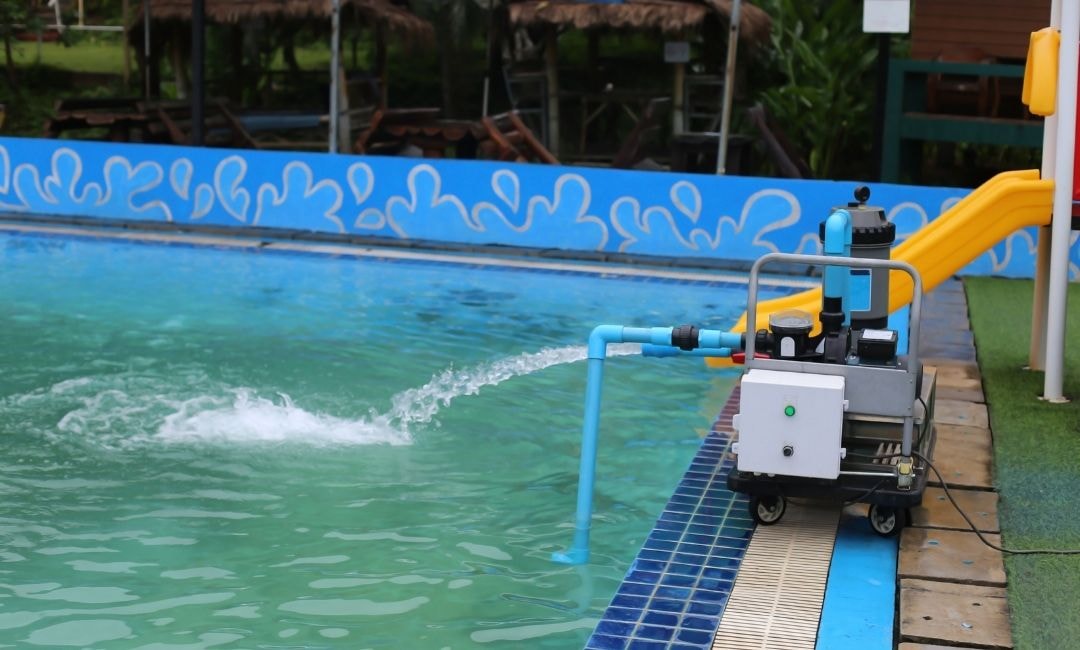
So, you’ve determined your pool pump needs replacing. Now comes the big question: should you tackle it yourself or call in a pro? Both options have their pros and cons. Let’s break it down.
DIY Pool Pump Replacement
- Potential Cost Savings: The main appeal of DIY is the potential to save money on labor costs. If you’re handy and comfortable with basic plumbing and electrical work, you might save some cash. Might is the keyword here.
- Learning Opportunity: For some, DIY projects are a chance to learn new skills. Replacing a pool pump can be a rewarding experience… if everything goes smoothly.
- Time Commitment: Replacing a pool pump is not a quick job. It requires careful planning, research, and execution. You’ll need to source the correct parts, disconnect the old pump, install the new one, and test the system. This can easily eat up a weekend—or more—especially if you run into problems.
- Risk of Errors: Mistakes during installation can lead to costly repairs or even damage to your pool equipment. Incorrect wiring, improper plumbing connections, or choosing the wrong pump size can create bigger problems down the line.
- Warranty Concerns: Many pool pump manufacturers void warranties if the pump is not installed by a qualified professional. This is a big risk to consider.
Professional Pool Pump Installation
- Expertise and Experience: Professional pool technicians have the knowledge and experience to install your new pump correctly and efficiently. They can also diagnose any underlying issues with your pool system. This is what you pay for.
- Time Savings: Hiring a pro frees up your time and allows you to focus on other things. No more weekend wrenching or frantic trips to the hardware store.
- Warranty Protection: Professional installation usually ensures your pump warranty remains valid, giving you peace of mind.
- Proper Equipment and Tools: Pros have the right tools and equipment for the job, ensuring a smooth and efficient installation. You don’t have to invest in specialized tools you’ll only use once.
- Higher Upfront Cost: The main drawback of professional installation is the higher upfront cost compared to DIY. However, consider this an investment in your pool’s long-term health and your own sanity.
When to Call Transparent Pool Service?
If you value your time, want the job done right the first time, and prefer to avoid potential headaches, calling a professional is the way to go. Transparent Pool Service offers expert pool pump installation services in Lehigh Acres, Alva, North Fort Myers, Babcock Ranch, Florida, and the surrounding areas.
We’ll handle everything from selecting the right pump to ensuring proper installation and testing. We also offer maintenance services to keep your pool in top shape. We can handle everything, so you don’t have to.
A Breakdown of Average Replacement Costs in 2025
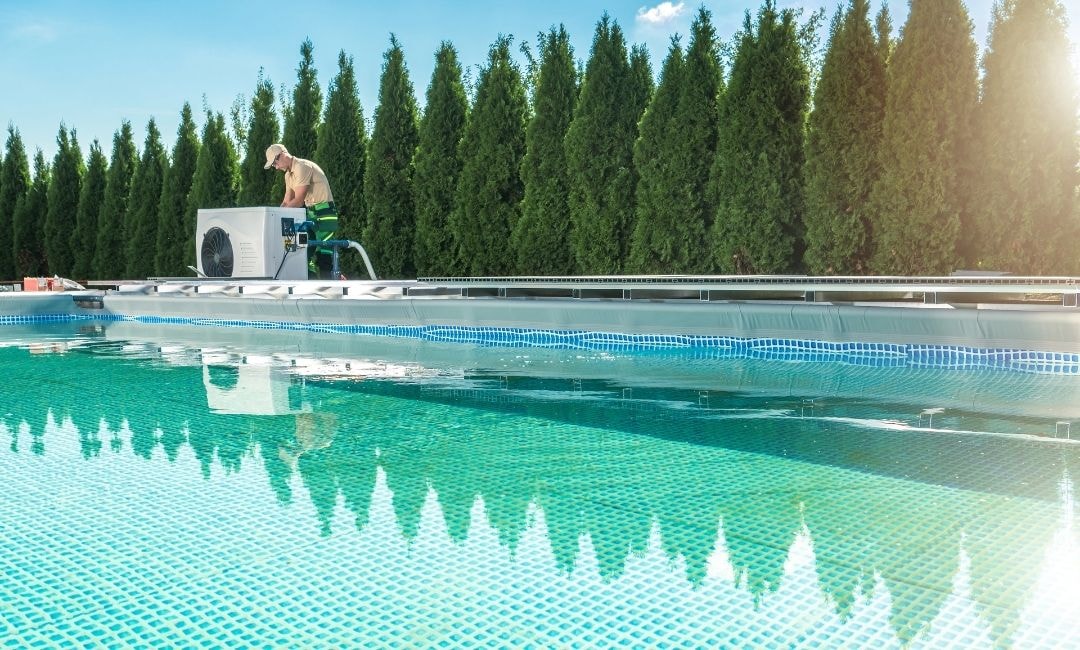
Let’s talk numbers. Knowing what to expect financially is a big part of deciding how to proceed with your pool pump replacement. Keep in mind that these are average costs, and the actual price can vary depending on a few key factors we’ll discuss later.
Average Costs
- Pool Pump Unit: The cost of the pump itself can range from roughly $300 to $1,600. This depends on the pump’s horsepower, type (single-speed, dual-speed, or variable-speed pool pump), and brand.
- Installation Labor: Professional installation typically costs between $100 and $400. This covers the labor for removing the old pump, installing the new one, and ensuring everything is working correctly.
- Total Replacement Cost: Combining the pump unit and installation, you can expect to pay anywhere from $400 to $2,000 for a complete pool pump replacement in 2025.
Factors Affecting Cost
- Pump Type and Size: More powerful pumps for larger pools will naturally cost more than smaller pumps for smaller pools. Variable-speed pumps, while more energy-efficient, generally have a higher upfront cost than single-speed pumps.
- Plumbing Modifications: If your new pump requires changes to your existing plumbing, this will add to the labor costs.
- Electrical Work: If any electrical work is needed, such as upgrading wiring or installing a new circuit breaker, this will also increase the overall cost.
- Location: Labor costs can vary depending on your location. Areas with a higher cost of living will generally have higher labor rates.
- Accessibility: If your pool equipment, like a pool filter or pool heater, is difficult to access, this could add to the labor time and cost.
Getting quotes from multiple pool service companies can help you compare prices and find the best deal. Transparent Pool Service offers free, no-obligation quotes for pool pump replacement in Lehigh Acres, Alva, North Fort Myers, Babcock Ranch, Florida, and the surrounding areas. We’re happy to provide a transparent breakdown of the costs involved so you can make an informed decision.
Ready to Keep Your Pool Flowing Smoothly With Transparent Pool Service?
Replacing a pool pump is a significant investment, but understanding the costs and recognizing the warning signs can save you from bigger headaches down the road. By weighing the pros and cons of DIY versus professional installation, you can make the best decision for your needs and budget.
Here are the key takeaways:
- Unusual noises, weak water flow, leaks, priming difficulties, frequent breaker tripping, and age are all signs your pump might need replacing.
- DIY installation can save money on labor but carries risks and may void warranties.
- Professional installation ensures the job is done right, protects your warranty, and saves you time and hassle.
- Replacement costs can range from $400 to $2,000, depending on various factors.
Dealing with pool equipment issues can be stressful, but it doesn’t have to be. If you’re in Lehigh Acres, Alva, North Fort Myers, Babcock Ranch, Florida, or the surrounding areas, Transparent Pool Service is here to help. We offer expert pool pump replacement services, transparent pricing, and a commitment to keeping your pool sparkling all season long. Contact us today for a free quote, and let us take the worry out of pool maintenance.
FAQs About Pool Pump Replacement
How much does it cost in labor to replace a pool pump?
Labor costs for pool pump replacement typically range from $100 to $400. This covers the removal of the old pump, installation of the new one, and basic testing to ensure proper operation. Factors like the complexity of the installation (e.g., plumbing or electrical modifications) and your location can influence the final labor cost.
Is it worth fixing a pool pump?
Whether it’s worth fixing a pool pump depends on several factors, including the age of the pump, the extent of the damage, and the cost of repairs versus replacement. If your pump is relatively new and the problem is a minor issue like a faulty seal or capacitor, repair might be a good option.
However, if the pump is old, has significant damage, or requires multiple repairs, replacement is usually more cost-effective in the long run. Continual repairs can add up quickly, and a new pump will likely be more energy-efficient.
How long do pool pumps last?
Most pool pumps have a lifespan of 8-10 years with proper maintenance. Factors like water chemistry, usage frequency, and environmental conditions can affect their longevity. Regular maintenance, such as cleaning the pump basket, lubricating moving parts, and ensuring proper ventilation, can help extend the life of your pump.
Can I replace my pool pump myself?
Yes, you can replace your pool pump yourself if you have the necessary skills and experience in plumbing and electrical work. However, it’s essential to consider the potential risks involved. Incorrect installation can lead to costly repairs, equipment damage, or even electrical hazards.
Additionally, many manufacturers void warranties if the pump isn’t installed by a qualified professional. If you’re unsure about any aspect of the process, hiring a professional is always the safer and often more cost-effective choice.

